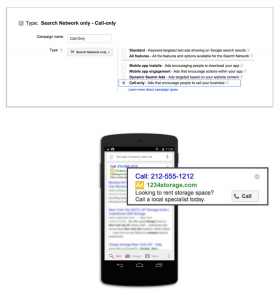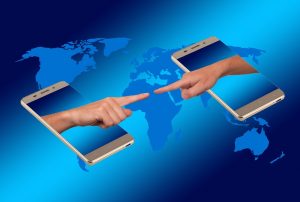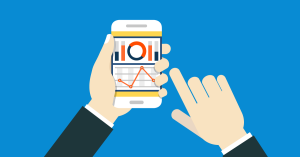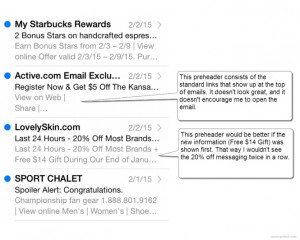
Publicity can be absolute gold for a business, or it can be a death knell — it all depends on what the press has to say about you. Public relations is a mystery to most businesses. In fact, many confuse it with advertising, although the two couldn’t be more different.
First, you don’t pay for an article written about your business. At least, you shouldn’t. With advertising, you pay a medium to distribute a message that you own and control. It doesn’t work like that with the press. Reporters have a relationship with their audience that is based on trust, and that trust would disappear in an instant if readers and viewers found out that their news is simply another advertising channel.
Second, positive publicity is far more valuable than advertising. There are expenses involved, sure, but in most cases, successful public relations offers a much greater impact than advertising. Ask any business that’s been featured in a TV segment how it impacted sales, as opposed to a 30-second ad that runs in commercial breaks. News stories get archived, shared and remembered far longer than ads do, providing benefits for months or years after they first run.
Lastly, businesses that get press coverage project an image of legitimacy. If a reputable news source sees your organization as worth sharing with the public, your company will look like a major player in the marketplace.
Most business owners dream of that amazing story the media writes about their brand, but getting attention from the press is a challenging, baffling and frustrating endeavor if you don’t follow a clear strategy. The first step is to make sure you’re offering real value to the news media and not just pestering them.
Understanding the News Media
Companies often forget that most news organizations are businesses, too. They have strategies, goals and revenue targets to meet just like you do, even though the editorial staff is far removed from business operations.
Reporters are busy people. They don’t sit around all day waiting for the phone to ring or a press release to land in their inbox. In fact, they’re inundated with “important announcements” from businesses, organizations and government agencies all day long. Most of those announcements will go ignored in favor of more important leads. Businesses that succeed at getting publicity understand certain things about the press that others do not.
You Have to Make the Press Care
No matter how amazing you might think your company, product or event is, the reality is that reporters probably will not care about it. Unless you’re pitching the business editor — and even then you need to make a strong case that your tale is compelling — your announcement about “the sale of the century” will likely become a trashed email. Think about the stories you’ve seen about other businesses over the years; the focus was probably on a unique concept that seemed different and compelling.
Think you can leverage your existing advertising relationship with the publisher to get a story? Not so. The worst thing you can do is to try negotiating with a reporter by pointing out that you are an advertiser, or worse yet, threaten to pull your ads if you don’t get editorial attention. This is a bad idea for many reasons. For one, it’s not fair to the reporter. It isn’t his or her job to keep you happy — that’s the sole responsibility of your ad rep. Second, good journalists take their responsibilities to deliver objective news coverage very seriously. They will resent and reject any attempt you make to bully your way into the news copy. Good media companies separate news and sales like church and state. Accept that, and your job will be much easier.
You Need an Ecommerce PR Strategy
Just like all good aspects of marketing, PR starts with having a good strategy. You need to identify a target market and create a well-defined public relations campaign.
- Define your objectives: What are you hoping to achieve by getting the public’s attention? “Getting your name out there” is not a goal. Be specific and set a timeframe to accomplish it.
- Identify your target audience: What audience do you want to reach? Is it people who shop at your store now, or are you targeting an entirely new market segment? Make sure you know your audience, especially their interests, values and the publications they read.
- Determine the right media: Make a comprehensive list of all the media your target audience uses, traditional and new, and get contact information from news people who will be most interested in hearing from you. Some news outlets have reporters that cover a specific geography or topic of interest. Find out who is the best fit so you can be sure to pitch the right person at the right time.
- Know the story: Study the media you want to pitch and make note of the types of stories they cover. Remember that a story that only promotes your business is not really a story at all. Reporters are interested in compelling stories that draw emotion from the audience. Sometimes the topic might be controversial. Other times, it’s more of a human interest variety. Regardless of your approach, you need to be honest with yourself and ask why would anyone care about this story. Is there a real benefit to the audience? Is it informative, entertaining or thought provoking? Make sure you’ve got a real story before you approach the media.
- Pitch the story and follow up: Send a succinct email (maximum 3-5 paragraphs) that clearly describes your suggested story and demonstrates that you are an expert who can provide answers. Make sure you lead with a question or statement that will pique the reporter’s interest, and that your presentation is professional, in a format that newsrooms like and includes your phone number and email address. If you don’t hear back, try again a week later and every week following until you get a response. Of course, you will need the gauge your efforts to not veer into the annoying. You don’t want to make an enemy out of a reporter. And, if asked for additional information, make sure you reply promptly.
Online Resources That Can Help
There are many resources on the web that can help your brand get more exposure.
- Handle Your Own PR: If you want to manage your own ecommerce PR efforts but need a little help and expertise, you can use Handle Your Own PR (HYOPR). This free service gives you the tools to start generating publicity for your business. You’ll find helpful tips, media list building tools and other resources that will help you learn the dos and don’ts of public relations campaigns.
- Localist: Businesses that host a lot of events should check out Localist, an online calendar platform that helps you manage and spread the word about your local events. Once your account is set up, you can import your events calendar, set up recurring schedules and venues you use, and manage other aspects of event planning. Localist also helps you create a community where people can check in at your event, write comments and reviews, and even upload pictures. The starter package costs less than $ 20 a month.
- Help a Reporter Out (HARO): Every day, reporters around the globe are seeking good sources of information for their stories. Online services like Help a Reporter Out (HARO) connect experts with members of the media, giving you access to journalists and bloggers who need your expertise for a story. When you sign up as a source, HARO will send queries from reporters directly to you throughout the day. When one of those queries looks like a good match, you can send your qualifications and offer an interview or a quote. HARO offers various subscription packages, including a free service for businesses that are just getting started in PR.
- Muckrack: Muckrack provides a slightly different service from HARO, allowing you to search through a database of 20,000 journalists and media representatives (7). You can email pitches to reporters, get alerts sent to your inbox, find out who is sharing your content online and customize your own media contact list. Their standard package starts at $ 179 a month.
Public relations can be vastly rewarding, but it takes patience and discipline. Invest the time to understand the medium, audience and strategies that will help your story get told to your audience in the publications they already love reading.
Digital & Social Articles on Business 2 Community(109)







